What is condsidered low carb protein powder?
Author:
Unlock your full potential by engaging with our experts and community! Have questions about your fitness journey or looking for expert advice on weightlifting techniques? Don’t hesitate — leave a comment below and Oleksandr Maksymenko will provide a personalized answer and insights to help you reach your goals.
Torokhtiy is reader-supported. Some links are affiliate links, and we may earn a commission at no extra cost to you. See our disclosure page for details.
Why should you buy a low-carb protein powder? If a protein powder is low-carb, that means more of its overall calories are going to protein, so you’ll be getting better value for your money.
This is doubly important for those on low-carb or keto diets. In this article, we’ll tell you all about what exactly is considered a low carb protein powder, what are the benefits of using it, and how to choose the one that will work for you.
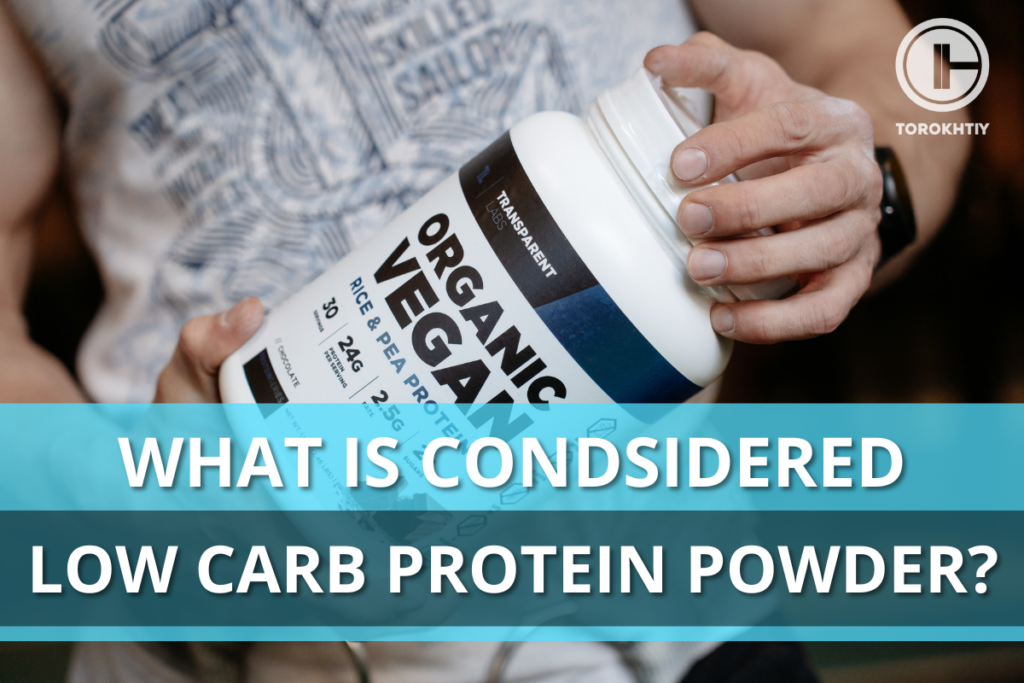
Why Do Protein Powders Contain Carbohydrates?
1. Carbohydrates In The Protein Source
Most proteins are sourced from whey which naturally has around a 70-80% protein density in its concentrate form. Whey concentrate is higher in carbohydrates that are predominately lactose and contains some fat. This is usually where the majority of carbs will come from in a protein powder.
Whey isolate on the other hand is a more filtered form of whey that seeks to remove as much fat and carbs as possible. These will be closer to 90-100% protein. As a tradeoff, isolates are usually more expensive than concentrates.
Overall, the filtering process is what determines how many carbs will be in the actual whey a protein powder is based on. The less filtered it is, the more carbs will come from the protein source.
2. Carbohydrates In Added Ingredients
The other way a protein powder will get its carbohydrates is from added ingredients, which are usually sweeteners. While most protein supplements use zero calorie sweeteners, there are some out there that use real sugar, leading to a significantly higher carb content in total.
There are also recovery drinks and mass gainers that use things like maltodextrin to intentionally boost the overall carbohydrate and calorie content. These can be great options if you’re looking to put on size, but should obviously be avoided if you want a low-carb protein.
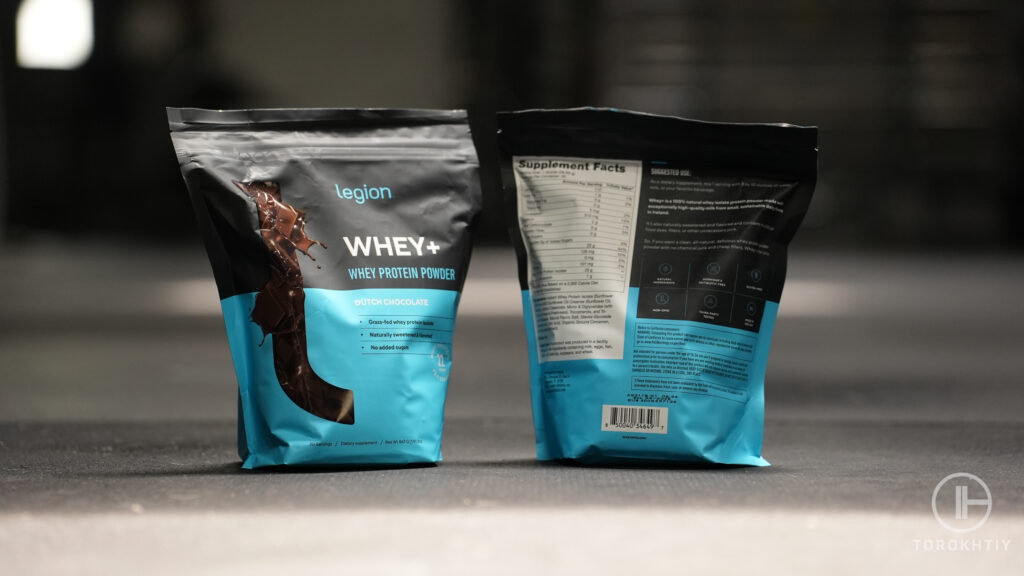
What Carbohydrate Content Is Considered Low?
For the purpose of this list, we stuck to protein powders with 3g of carbs per serving or less.
While what is considered “low-carb” might be higher for some people, we wanted to make sure that all these proteins were suitable specifically for those on very carb-restrictive diets. At 3g or less, this makes all these protein powders suitable for even the most carb-restrictive diets, which will usually allow 20-50g of carbs per day.
Also, the quality and price supplements on our list show there’s no real reason for a protein to have more than 3g of carbs per serving. With plenty of affordable, high quality products out there with 3g of carbs or less, be wary of any supplement company selling protein powder with an unnecessarily high carb count.
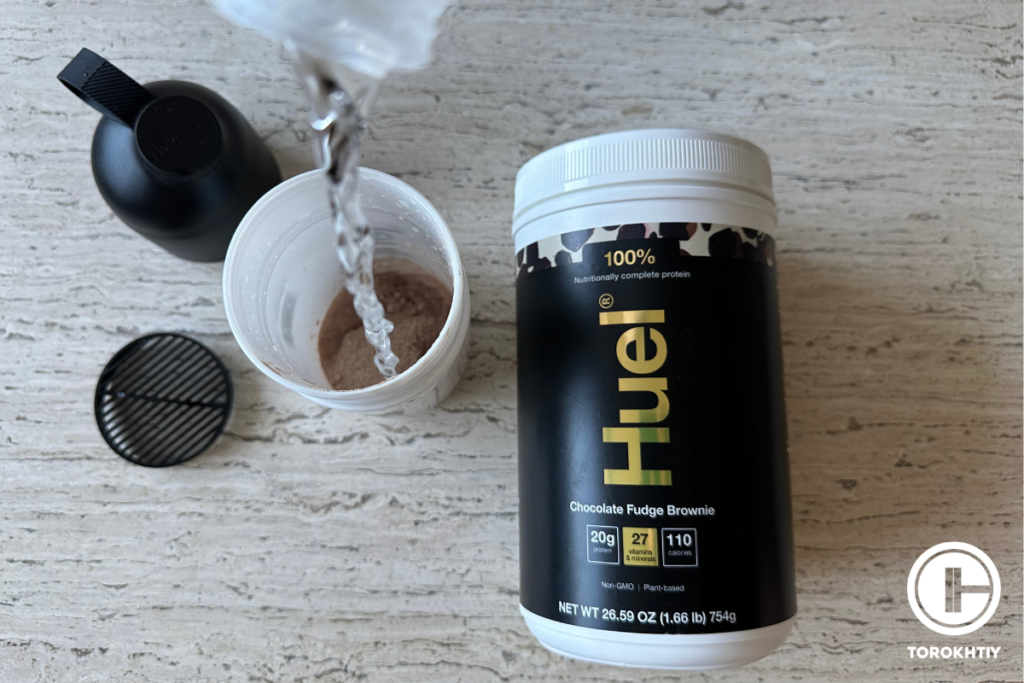
2 Benefits Of Low-Carb Protein Powders
✅ Higher Protein Concentration
The main obvious benefit of low-carb protein powders is that you’re likely getting a formula with a higher protein concentration.
If you’re buying a protein powder, you likely want as much protein as possible – not carbs or fats. This is why we recommend looking for a protein with a concentration as close to 100% as possible.
A low-carb protein is also a sign that the formula doesn’t contain any unnecessary sweeteners or filler ingredients that bump up the total carb count.
✅ Better For Dieting And Keto
Especially if you’re dieting, you don’t want to waste any extra calories on unnecessary carbs. The closer you get to the end of a cut, the more every carb begins to count. If you’re in a serious caloric deficit, it’s important you’re not using a protein powder that makes it more difficult to stick to your diet.
Also, if you’re following a keto diet, you obviously don’t want to be using a protein powder with any more than 3g of carbs. Using a high-carb protein powder will make it much more difficult to stay in ketosis, so definitely go with a protein as close to 0g of carbs as possible.
Isopure Unflavored Whey Isolate
- Diet Type: Building Muscle, Improving Recovery, Cutting
- Suitable for Vegans: No
- Protein Source: Whey Protein Isolate
- Package Type: Plastic Tub
- Package Weight: 3lb
- Serving Size: 29g
- Price per Serving: ~$1.56
- Protein Percent of Calories: 100%
- Calories: 100
- Protein: 25g
- Carbohydrates: 0g
- Fat: 0g
- Sugar: 0g
- Company Founded: 1984
- Recommended by Athletes: Josh Dixon, Betina Gozo, Whitney Davis
At 25 grams of protein per serving and only 100 calories, this protein has a perfect protein concentration of 100%. At 0g of carbs per serving, it doesn’t get more low-carb than this! However, it can still absolutely be used for bulking as well.
If you’re concerned about how many carbs are in your protein powder, you’re probably also concerned about unnecessary ingredients and fillers. In this case, Isopure is perfect as it is a simple 2 ingredient formula made up of whey protein isolate and soy lecithin (lecithin is commonly used in protein powders as an added thickener).

Isopure does also have low-carb options available with slightly lower protein concentrations. With flavors like chocolate, vanilla, and strawberry, these would be good choices for those who prefer flavored protein. Just keep in mind these have around 4 grams of carbs per serving.
Is It Worth Paying More For A Zero Carb Powder Compared To A Low-Carb Powder?
Probably not. Even in the most extreme carb-restrictive diets, you can have 20-50g of carbs, so having up to 3g of carbs in a protein shake is not bad at all. The difference between a carb-free protein powder and one with a few grams of carbs is not serious enough to justify a significantly higher price.
Even with this being said you can get a 0 carb protein powder for a great price at just over a dollar per serving. Even if you’re dead set on getting 0 grams of carbs in your protein powder, there are plenty of affordable options out there.
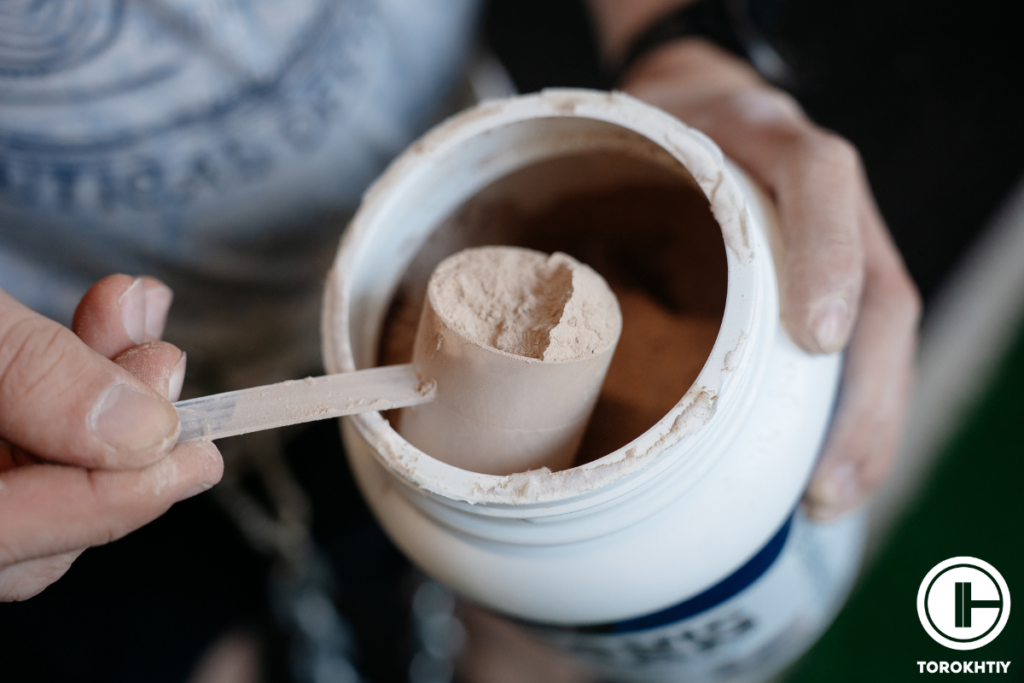
FAQ
Which Whey Protein Has The Least Carbs?
The whey protein with the lowest carb count that we recommend is the Isopure Unflavored Whey Isolate. Delivering a perfect macronutrient breakdown, as well as coming at a decent price, Isopure has everything you would want.
What Is The Best Low-Carb Protein Shake?
Our choice for the best overall low-carb protein shake is Isopure Unflavored Whey Isolate with 0g total carbs. However, you’re more than welcome to do your own research because you never know, you may find one that’s better for you.
Conclusion
Low carb protein powders are an effective, convenient way to boost your protein intake while keeping your carb count low. They’re especially good for people on low-carb diets, athletes who want to optimize muscle growth, and anyone that’s after balanced diet.
Before you choose the one for yourself, make sure to look for options with minimal added sugars and carbs, and of course, consider your personal preferences, health, and budget. As far as we’re concerned, you won’t go wrong with Isopure Unflavored Whey Isolate.
Do you use protein powders and if you do, what kind? Let us know if you’ve tired any, and if you have anything else to share on this topic, feel free to do so!
Also read:
- Organic Protein Powder Guide
- Best Cheap Protein Powder
- How To Pick The Cleanest Protein Powder
- Is Sugar Free Protein Powder Better
References:
- Soybean lecithin composition, fractionation, and functionality // Yingzi Wu: https://dr.lib.iastate.edu/server/api/core/bitstreams/5c8ecf42-8fe6-4e34-b1b4-ea423bf11695/content
- Whey Versus Casein Supplementation in Physically Active,
- Healthy Individuals // IJAHSP: https://nsuworks.nova.edu/cgi/viewcontent.cgi?article=2128&context=ijahsp
- Grass-fed cows produce healthier milk // UMN: https://extension.umn.edu/pasture-based-dairy/grass-fed-cows-produce-healthier-milk
- Protein Powder: The What, Why, & How To Choose // HealthCentre: https://healthcenter.uga.edu/protein-powder-the-what-why-how-to-choose/
- Milk Composition // Milk Facts: http://milkfacts.info/Milk%20Composition/Carbohydrate.htm
- Diet Review: Ketogenic Diet for Weight Loss // HSPH: https://www.hsph.harvard.edu/nutritionsource/healthy-weight/diet-reviews/ketogenic-diet/
- Photos made by Torokhtiy Media Team
Why Trust Us?
With over 20 years in Olympic weightlifting, strength training, nutrition coaching, and general fitness our team does its best to provide the audience with ultimate support and meet the needs and requirements of advanced athletes and professional lifters, as well as people who strive to open new opportunities and develop their physical capabilities with us.
By trusting the recommendations of our certified experts in coaching, nutrition, and sports training programming, as well as scientific consultants, and physiotherapists, we provide you with thorough, well-considered, and scientifically proven content. All the information given in the articles concerning workout programming, separate exercises, and athletic performance, in general, is based on verified data.
The product testing process is described in more detail here.
Author: Oleksandr Maksymenko
Certified Sports Nutritionist,
MSc Sports Dietetics
Specializing in: Weight management, Fitness / Sports nutrition
Oleksandr is a professional fitness nutritionist certified by the Fitness Professional Association (FPA). He follows the principles of evidence-based dietetics and fosters a healthy relationship with food in his clients, ensuring there are no strict prohibitions on their favorite foods or frequent lapses. His primary goal is not only to achieve results for you but also to sustain them over the long term, all while enjoying tasty and delicious food.



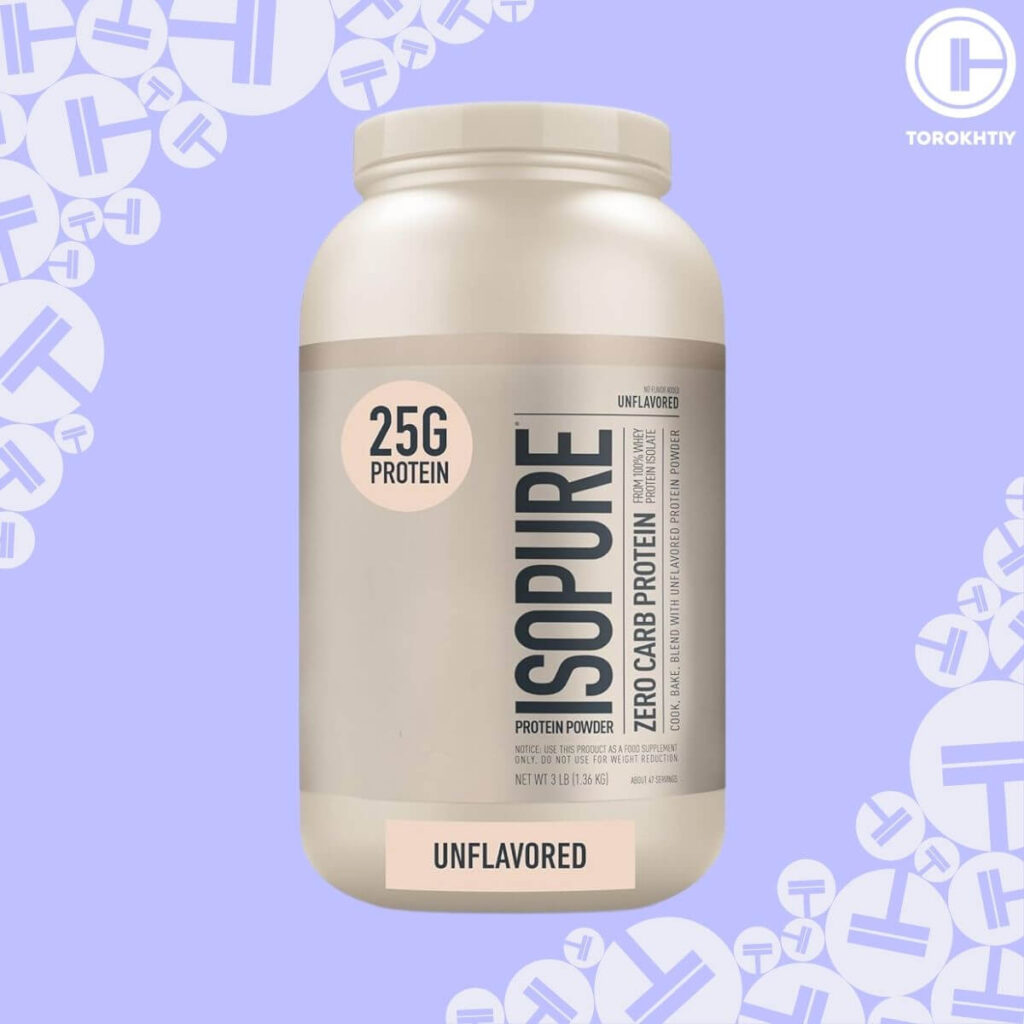
Still have questions after reading our article? Unlock your full potential by engaging with our experts and community! Don’t hesitate — leave a comment below and Oleksandr Maksymenko will provide a personalized answer and insights to help you reach your goals.